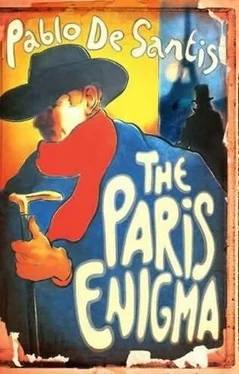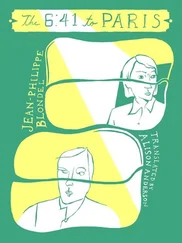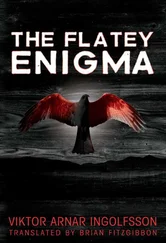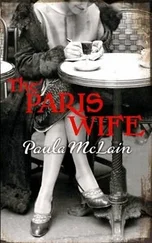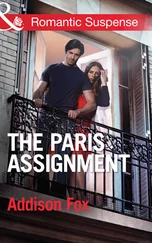Gabriel Alarcón’s disappearance marked the end of the Academy. The newspapers, which had so celebrated the detective’s achievements in the past, now attacked him mercilessly: he had sent a novice, an innocent, to an uncertain fate. The other students, pressured by their families, stopped coming. Trivak and I decided to stay in the empty building, as a show of confidence in Craig. We helped classify the pieces from the forensic museum, we cleaned and oiled the microscopes, and we waited in vain for the classes to start up again. Finally Trivak left as well.
“Your family?” I asked him.
“No. Boredom.”
I had a good excuse to stay: the organization of the archive, which Craig had assigned to me months earlier. I would arrive early and go to the kitchen, where Angela served me yerba maté tea and French toast she made with day-old bread. Once in a while I had tea with Señora Craig, and we continued the conversations she had begun with Alarcón. I tried to cheer her up, but each time I saw her she seemed paler, dulled by Alarcón’s disappearance and her husband’s fall from grace.
Tired of the journalists’ attacks, Craig swore he would find Alarcón. He called it “My Final Case,” which seemed to be an admission that something had gone terribly wrong, that he couldn’t continue. He thought it had a dramatic effect (and he was right). “My Final Case” he would say, sometimes even in the third person, “Detective Craig’s Final Case,” and then he would pause reverently. His detractors were now silenced, not because Craig commanded respect, but because endings commanded respect.
During the day he stayed at the Academy, afraid the journalists, the snoops, and those sent by Alarcón’s parents would follow him. There was no way to talk to him, he stayed shut up inside his study, writing in notebooks with black covers. His handwriting was a trail of ants that didn’t know where they were marching.
I thought, at that point, that Craig was beaten; but never stopped proclaiming to the journalists, who were increasingly less interested, to his wife, who had stopped leaving the house, and to me, the only one who listened to him, that he was very close to solving the case. One night he took me away from my work-as I classified his old papers, my admiration for his past and my compassion for his present continued to grow-and he asked me to accompany him to the Green Room.
Without any special emphasis, as if he were telling me of a decision made by someone else, or by simple inertia, he told me that I would be his acolyte.
“But you said that you would never have an assistant.” “The word never shouldn’t exist; that way we would be less inclined to make promises we can’t keep. This title, in spite of our situation, will be handled with due formality and announced to The Twelve Detectives.”
In that moment, mentioning The Twelve Detectives seemed incongruent and at the same time it gave me hope. It was as if Craig once again invoked his power to invent and amaze, reviving all that I believed in. For a few seconds I saw the image of my name in the “In Hushed Tones” section of The Key to Crime .
The detective rubbed his eyes like he was waking up from a sleep that had lasted days and he continued, “You do know this position won’t last long. This is my final case.”
My body tensed involuntarily, and my firm voice complemented my martial stance.
“I hope it won’t be your final case; I hope it’ll be a new start. But if it is, if the day when all the city’s murderers can sleep easy has arrived, then there can be no greater honor than having a small role in your farewell.”
Craig nodded distractedly at my words.
That day I started to work. The magician had already violated his obligation to appear at the police station and had f led the city. I visited all the hotels where he might have stayed. Once in a while Craig came with me. I was expecting the classic dialogue between acolyte and detective to develop between us. The Hindu, Dandavi, who worked for Caleb Lawson, pretended not to understand anything because he was foreign, which forced Lawson to explain everything to him in great detail; the Alsatian Tanner spoke in almost a whisper, and only raised his voice when Arzaky surprised him with a brilliant revelation; Fritz Linker, assistant to Tobias Hatter, the detective from Nuremberg, asked such obvious questions that he could easily be taken for an idiot. All the other detectives talked to their assistants, but we proceeded in silence. I rehearsed silly phrases, I was taken in by obvious ideas, by the luster of appearances, and I always had a cliché on the tip of my tongue, leaving room for Craig to dazzle me with the secret logic of his thinking. But the detective never spoke, and we walked through the night as if there was nothing more to be said.
The owner of the Victoria Theater, a tremendously fat man who had been a tenor in his youth, let us poke around, afraid that the criminal notoriety of the artist would bring him problems with the law. The theater was a labyrinth that not even he knew very well; the basement levels and the wings stored sets from old shows. In the half-light we banged up against Venetian bridges, plaster storks, and Chinese palaces. Whispers could be heard at the back of the endless basement, as if not only sets were stored there, but the entire casts of forgotten plays as well.
Renato Craig went about looking for clues, but it was clear that his despondency was preventing him from carrying out an in-depth investigation. It was no secret that Craig hated theaters, a dislike that was well known to all the students at the Academy, and even to any reader of The Key to Crime . Although he is remembered as the first detective in Buenos Aires, Renato Craig was actually the second. The first one was named Jacinto Vieytes, and he was a tracker who came here to live after some resounding triumphs in his detective work. Vieytes managed to apply trail guide methods to urban crime. And while his skills, when employed in hotel rooms, society halls, and railroad stations, didn’t yield such spectacular results as when he was studying hoofprints, trails in the grass, or bonfire remains, the police often called him to study crime scenes. He liked to have people around, for him to dazzle with his deductive reasoning, which was half logic and half old country proverbs. An Italian theater impresario realized that he could use the fact that the tracker was such a character to his advantage and he organized a performance for him at the Argentine Theater. Vieytes shared a billing with Frank Brown, the clown. The theatrical representation of his skills cost him all credibility; the audience thought he had always been just an actor. Although he knew that Vieytes had real talent as a detective, Craig felt that his performance diminished the art of investigation. The detective hated theaters because they reminded him of his predecessor’s show, as well as the danger of turning the lonely act of reasoning into an empty spectacle. When he worked as a detective, Vieytes never had an acolyte but when he entered show business, he decided to have an actor play the part of the common man who expressed his foolish opinions as a lead-in to the detective’s brilliant conclusions.
So the heavy work was left to me. With my magnifying glass I traced the f loorboards of the dressing room in search of a letter, some scrap of paper, or even a hair. Beneath a trunk of such enormous dimensions that it couldn’t have fit through the door I found a receipt for the purchase of a boat crossing. I showed it to Craig.
“He’s left the country, sir. Here’s the receipt for a ticket on the Goliardo , which left port a week ago.”
Craig held up the receipt and studied it under the magnifying glass.
Читать дальше
